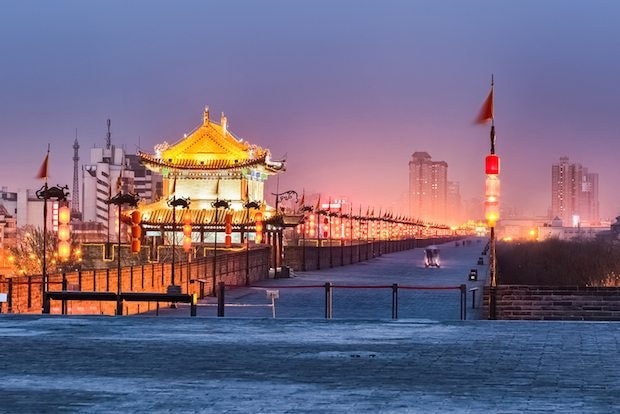
Xi'an is set to be a popular travel spot for Beijingers during the APEC summit. (Shutterstock)
Retailers and hoteliers that benefited from Chinese tourist revenue during the China’s recent Golden Week travel period are set to see an extra boost this fall as the Asia-Pacific Economic Cooperation (APEC) descends upon Beijing.
In addition to the typical annual holiday period surrounding China’s National Day that concluded in early October, Beijing residents will be getting an extra set of days off for the November 7-12 meeting of world leaders that will include U.S. President Barack Obama and Russian President Vladimir Putin.

A vacation calendar marking the APEC summit vacation days (in red) and weekend days that people have to go into work to "make up" for the holiday time (in blue).
Motivated in large part by hopes of cutting down on traffic and smog during the summit, the Chinese government has encouraged tourism during the holiday by launching six different high-speed rail lines to popular tourist destinations across the country, including a four-day trip to Xi’an to the Huashan Mountain and Terracotta Army and a seven-day trip to Changsha, Shaoshan Mountain, Zhangjiajie, Huanglongdong Cave, and Furong Town. In addition, the China International Travel Service tour agency announced travel package discounts, while online booking site Qunar has seen a rise in booking volume for the time period, according to Bloomberg.
Expectations from tourism-related companies are high thanks to the boost they received during the APEC summit in Shanghai back in 2001. The five-day break period saw outbound tourism numbers increase by up to 110,000 more people than normal leaving the city on trains, and 15 percent more outbound tourists traveling on planes, according to Chinese media. Rising incomes and the growing popularity of tourism in China mean that this year is likely to see much larger numbers of outbound Beijingers.